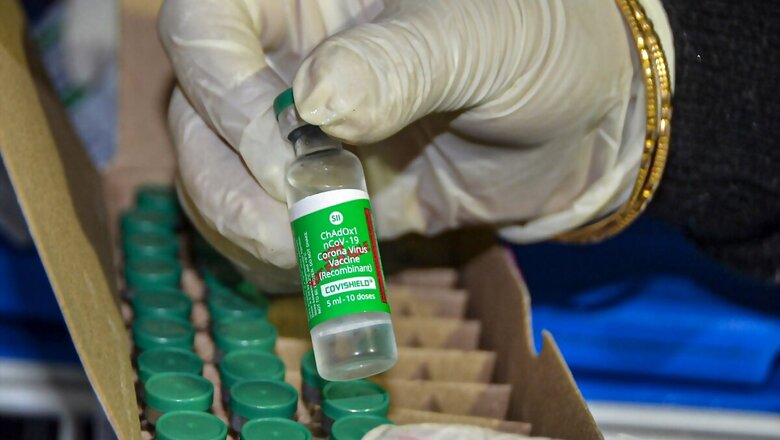
views
The Global Advisory Committee on Vaccination Safety (GACVS) of the World Health Organisation (WHO) has issued a statement on blood clot cases reported by people after getting Covid-19 vaccines. The committee said that Thrombosis with Thrombocytopenia Syndrome (TTS), a rare type of blood clotting occurrence typically associated with low platelet count, was being seen after inoculation of Covishield and Vaxzeria vaccines.
All those vaccines which reported blood clots cases are adenoviral vaccines. While mRNA vaccines like Pfizer, Moderna, BioNTech and Sputnik V have not reported any adverse effects yet.
“The biological mechanism for this syndrome of TTS is still being investigated. At this stage, a ‘platform specific’ mechanism related to the adenovirus-vectored vaccines is not certain but cannot be excluded. On-going review of TTS cases and related research should include all vaccines using adenoviral vector platforms,” the statement reads.
Blood clotting cases after receiving vaccine shots were reported from several countries in the past few days. Recently, US federal health agencies recommended pausing the use of Johnson & Johnson’s COVID-19 vaccine after six women under 50 given the shot developed rare blood clots.
Following the news, Johnson & Johnson (J&J) said it was delaying the rollout of the vaccine to Europe, a week after regulators there said they were reviewing rare blood clots in four recipients of the shot in the United States.
The moves come after European regulators said earlier this month they had found a possible link between AstraZeneca’s COVID-19 vaccine and a similar rare blood clotting problem that led to a small number of deaths.
The US Food and Drug Administration (FDA) said one person had died from the rare blood clotting condition after taking the J&J vaccine and another was in a critical condition.
The latest data showed that the risk of TTS emerging after administering with Vaxzevria and Covishield vaccines is very low. However, the WHO committee has advised nations to do an analysis taking into account local epidemiological conditions, the target age group for vaccination and availability of alternate shots.
“At a minimum, countries should encourage clinicians to measure platelet levels and conduct appropriate radiological imaging studies as part of the investigation of thrombosis. Clinicians should also be aware that although heparin is used to treat blood clots in general, administration of heparin in TTS may be dangerous, and alternative treatments such as immunoglobulin and non-heparin anticoagulants should be considered,” reads the statement.
Meanwhile, the WHO panel also suggested all countries to conduct safety surveillance on all available Covid-19 vaccines and share the information with local authorities and the WHO global database which is needed to support evidence-based recommendations on these life-saving vaccines.
“Countries assessing the risk of TTS following COVID-19 vaccination should perform a benefit-risk analysis that takes into account local epidemiology (including incidence and mortality from COVID-19 disease), age groups targeted for vaccination and the availability of alternative vaccines,” the WHO said.
It also advised doctors to monitor any new symptom occurred within 4 to 20 days of taking a vaccine dose.
The WHO also said that it is carefully monitoring the rollout of all Covid-19 vaccines and will continue to work closely with countries to manage potential risks, and to use science and data to drive response and recommendations.
(with inputs from Reuters)
Read all the Latest News, Breaking News and Coronavirus News here. Follow us on Facebook, Twitter and Telegram.




















Comments
0 comment